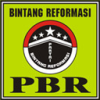Background
The party began as a movement within the United Development Party (PPP) to depose Vice-president Hamzah Haz from the chairmanship, which he held for the 1998–2003 term, as it was felt he would not have time to run the party and hold the vice-presidency. The movement's leader was Zainuddin MZ, an Islamic preacher and chairman of the party's central leadership. He and other dissatisfied party members planned to establish a new party to be called the PPP Reformasi (PPP Reform). After a meeting between the discontents and Hamzah Haz, Hamzah agreed to accommodate the demands of Zainuddin's group for a restructuring and regeneration of the PPP leadership. Zainuddin said he did not want to be responsible for the breakup of the PPP. A "Team of 7" was established to undertake the changes, but Zainuddin sent the PPP leadership a letter stating that he was not prepared to sit on the team as it was not in accordance with party rules. On January 8, 2002, Zainuddin resigned from the PPP and on January 20 declared the formation of the PPP Reformasi with a logo similar to that of the PPP but with five stars added. As the 2002 Election Law did not allow parties to use existing party names or symbols, the PPP Reformasi became the Reform Star Party with a new symbol. [2] [3]
The party was beset by internal conflict. As a result of tension between Zainuddin and Zaenal Ma'arif, two of the party's founders, an extraordinary party congress was held in April 2006. This saw the expulsion of Zaenal, who had wanted to become party chairman. Subsequently, other party members joined other parties, including Zainuddin himself, who joined the Great Indonesia Movement Party (Gerindra). [4]
This page is based on this
Wikipedia article Text is available under the
CC BY-SA 4.0 license; additional terms may apply.
Images, videos and audio are available under their respective licenses.
